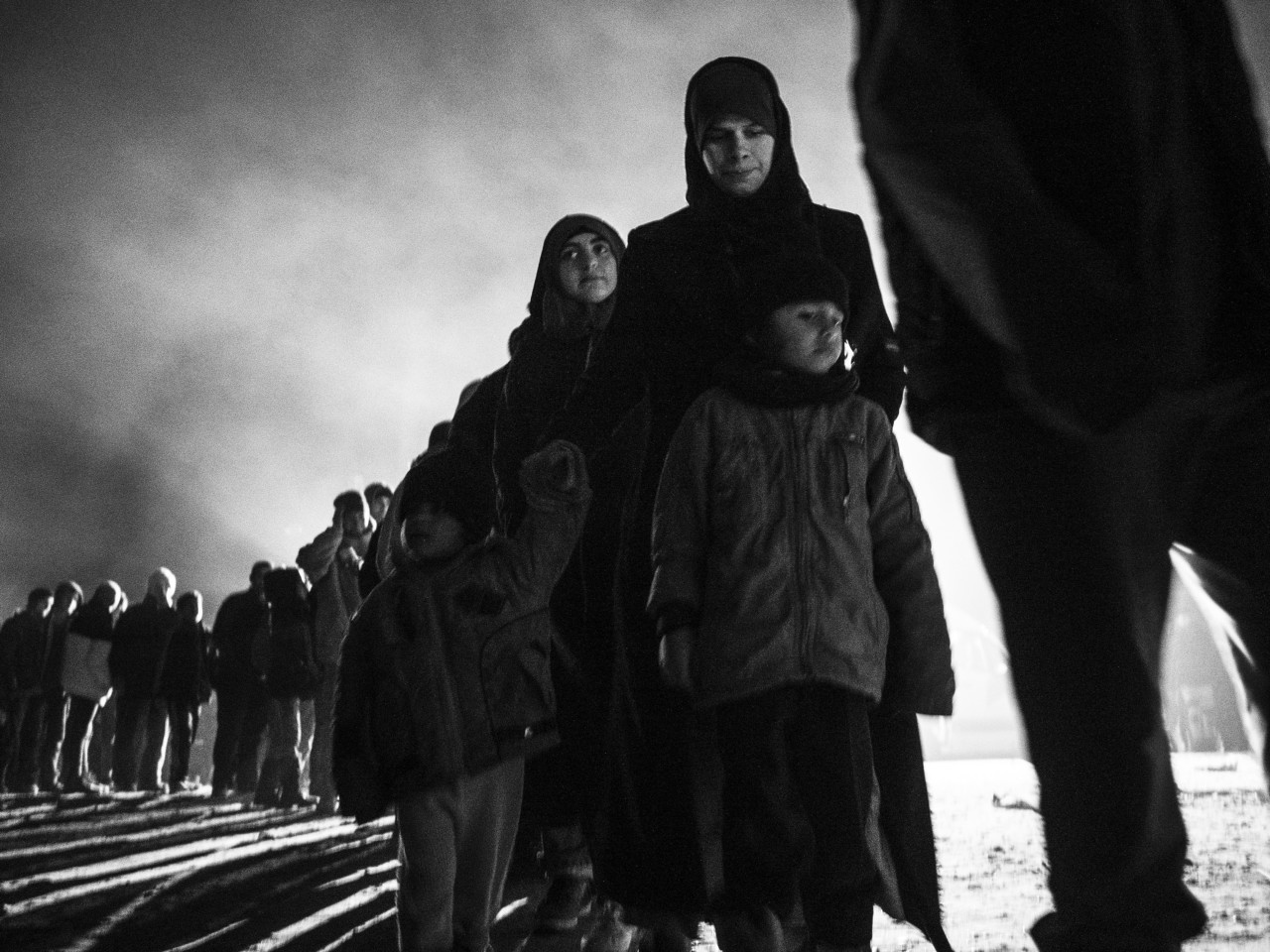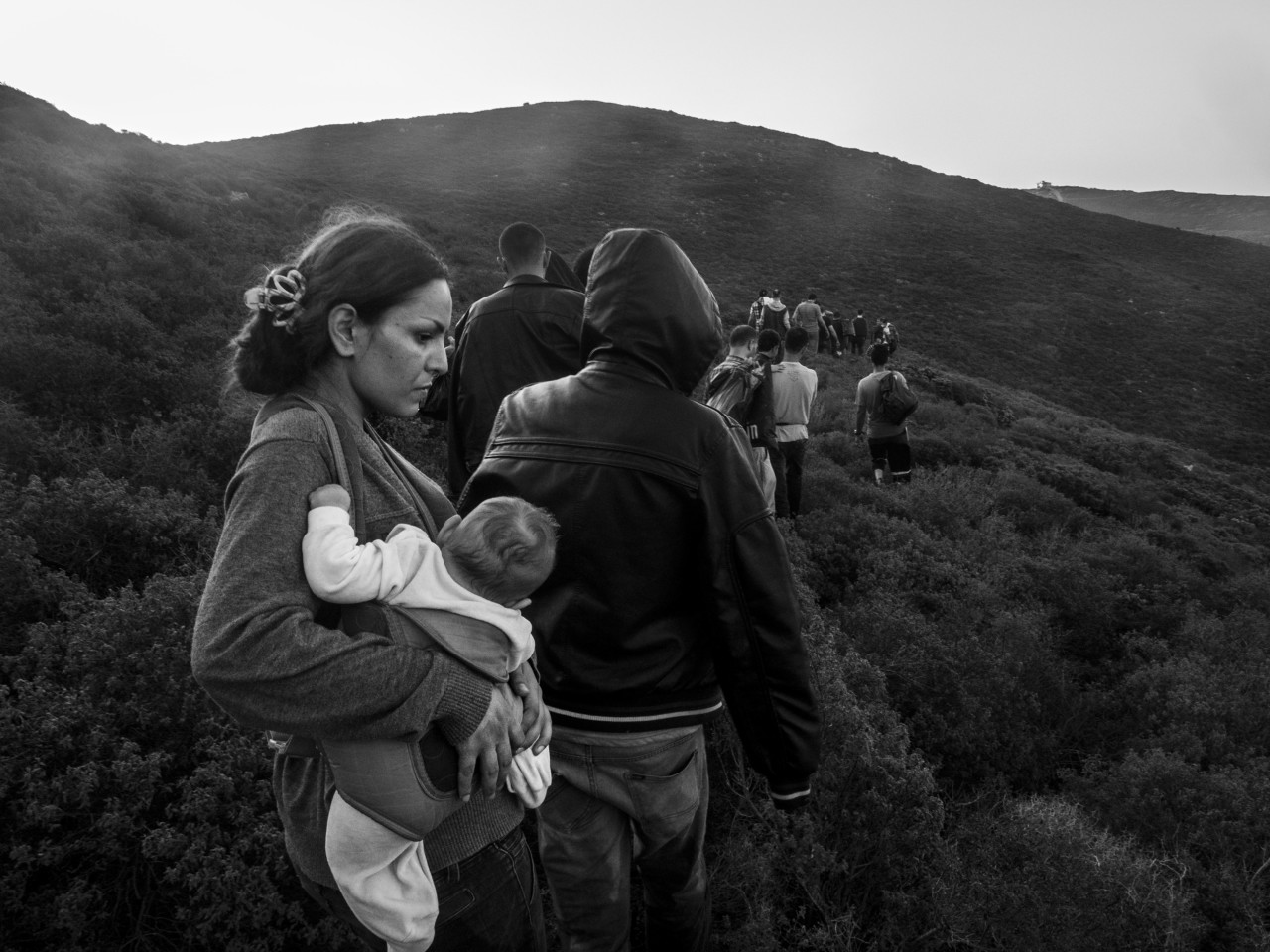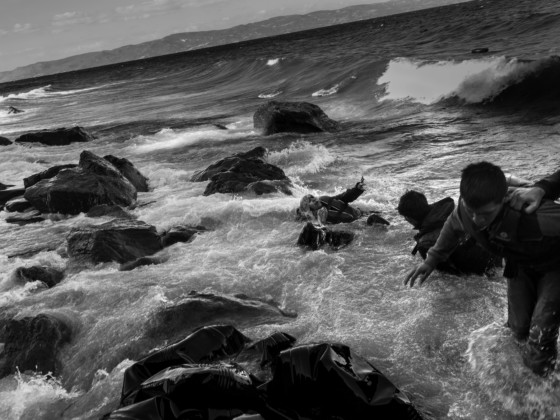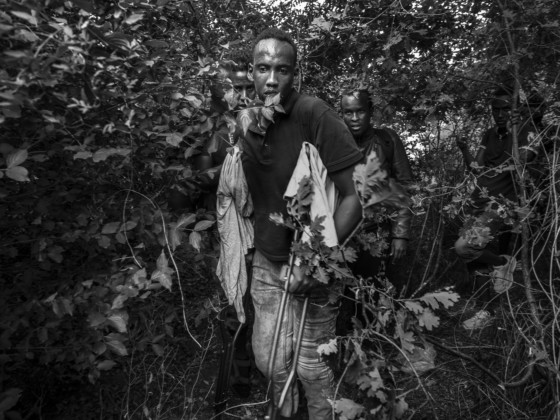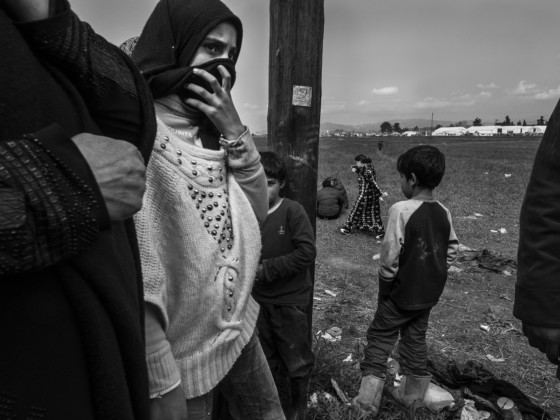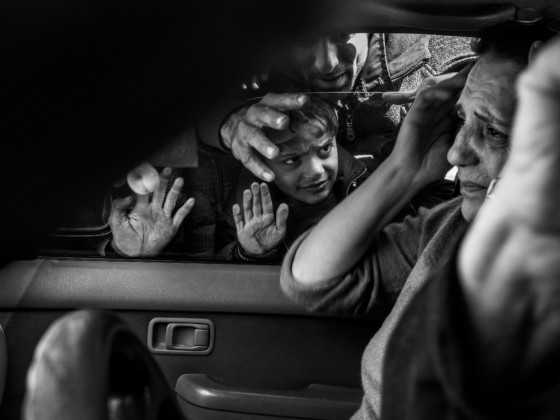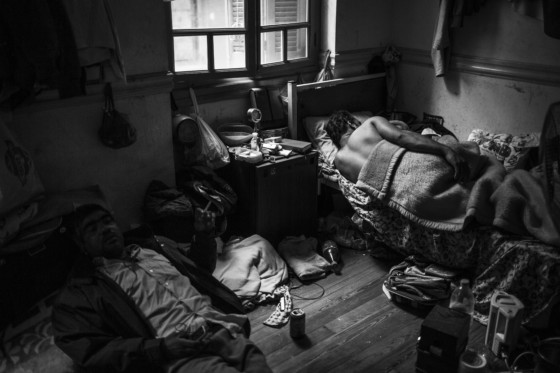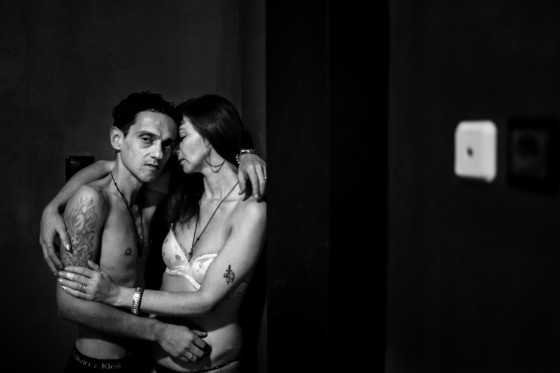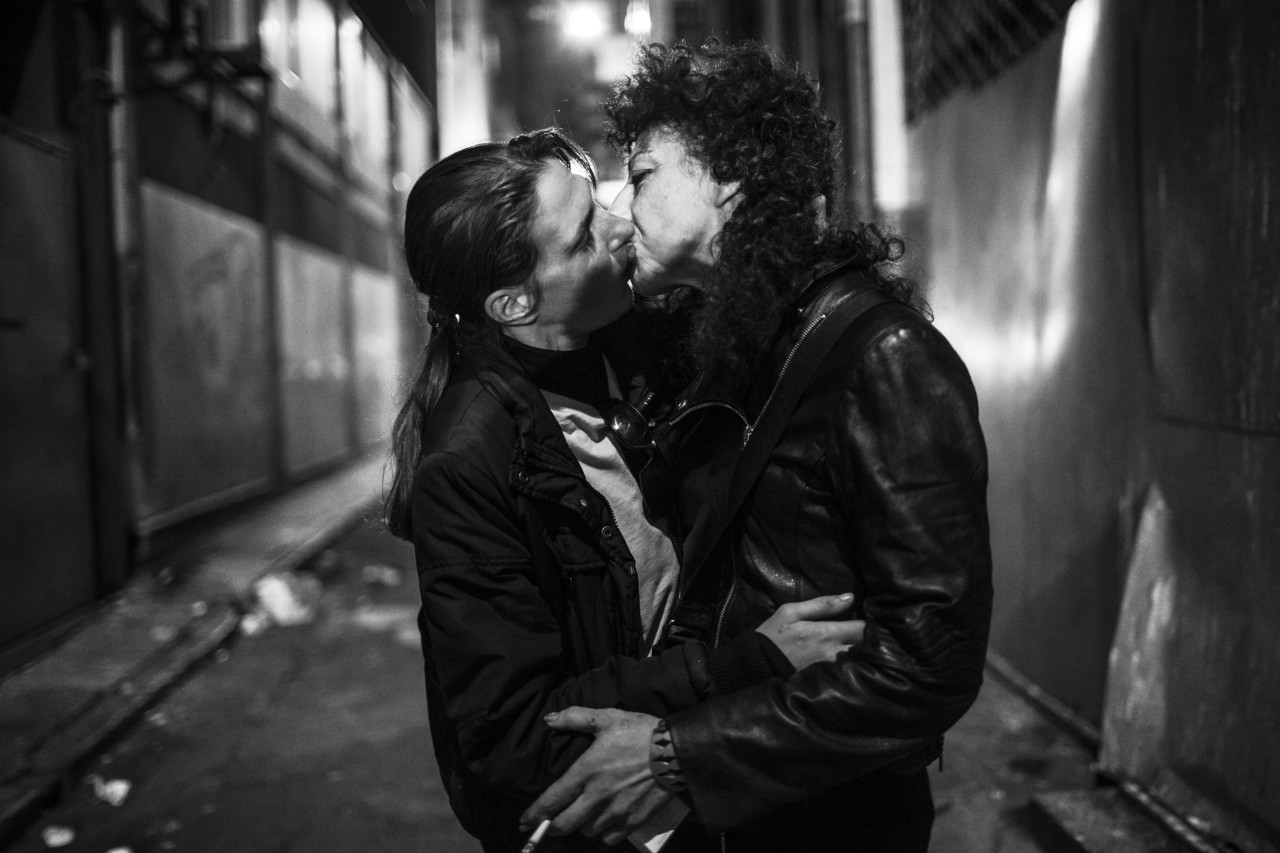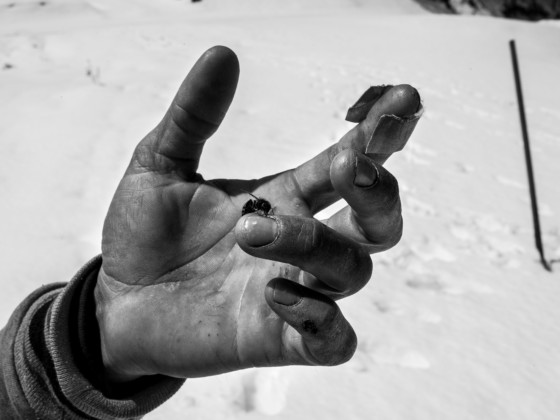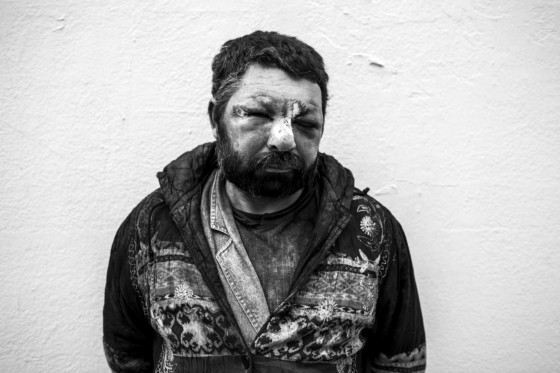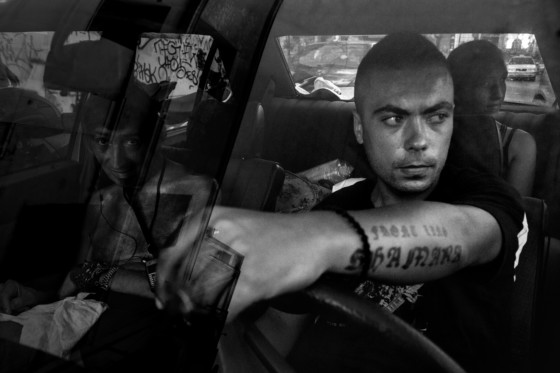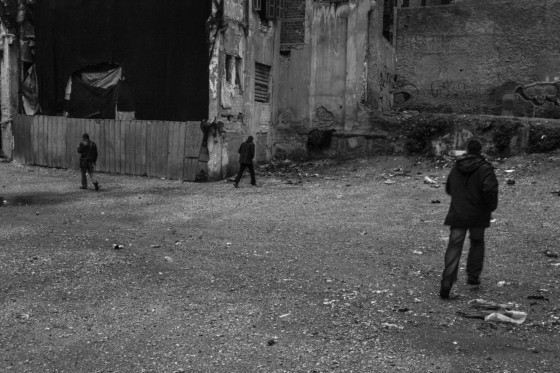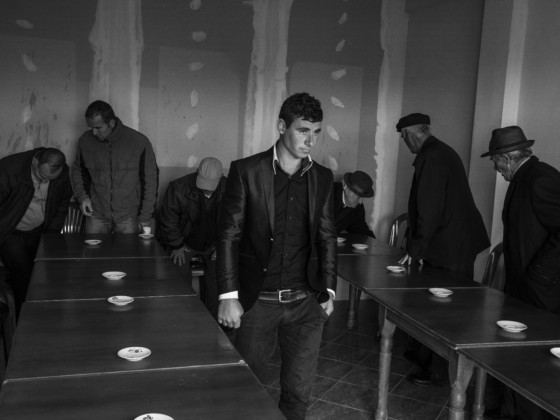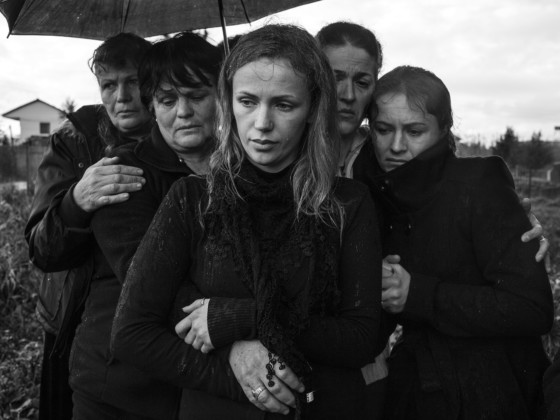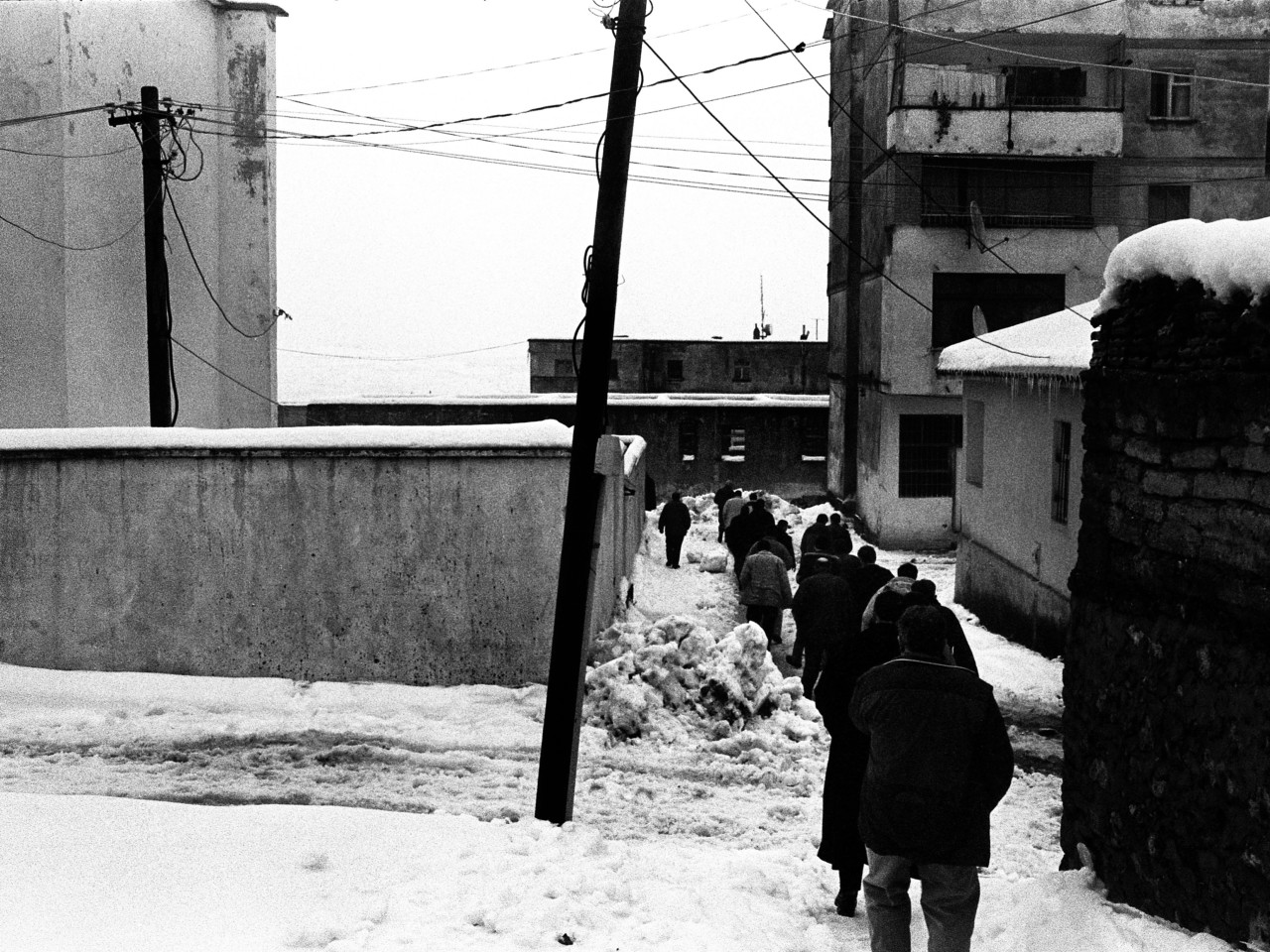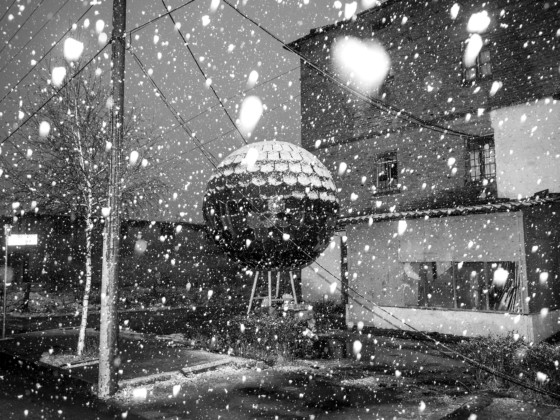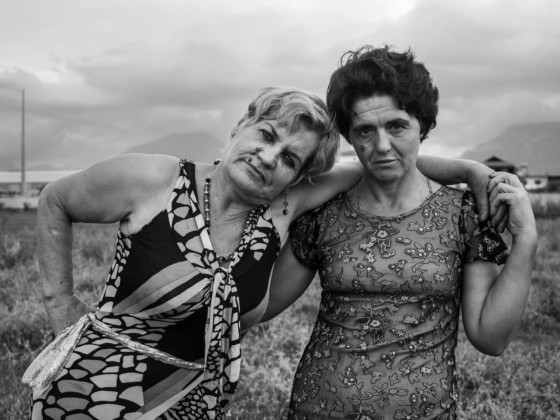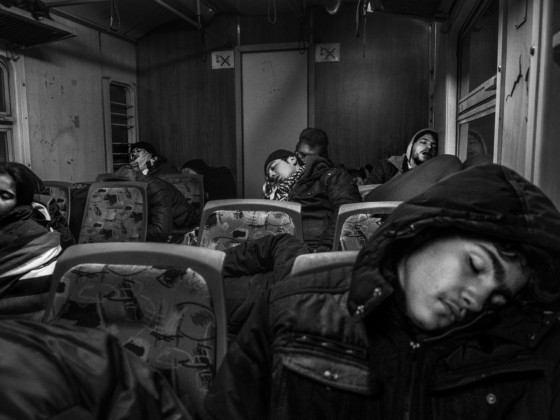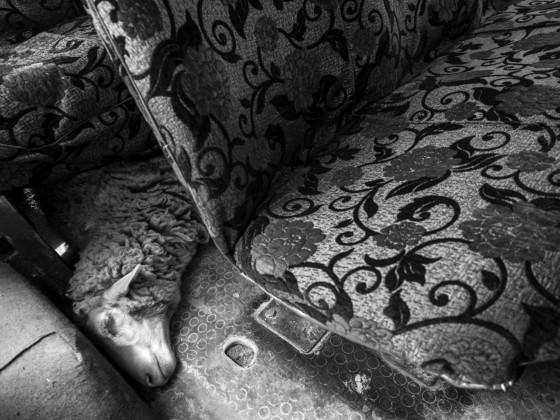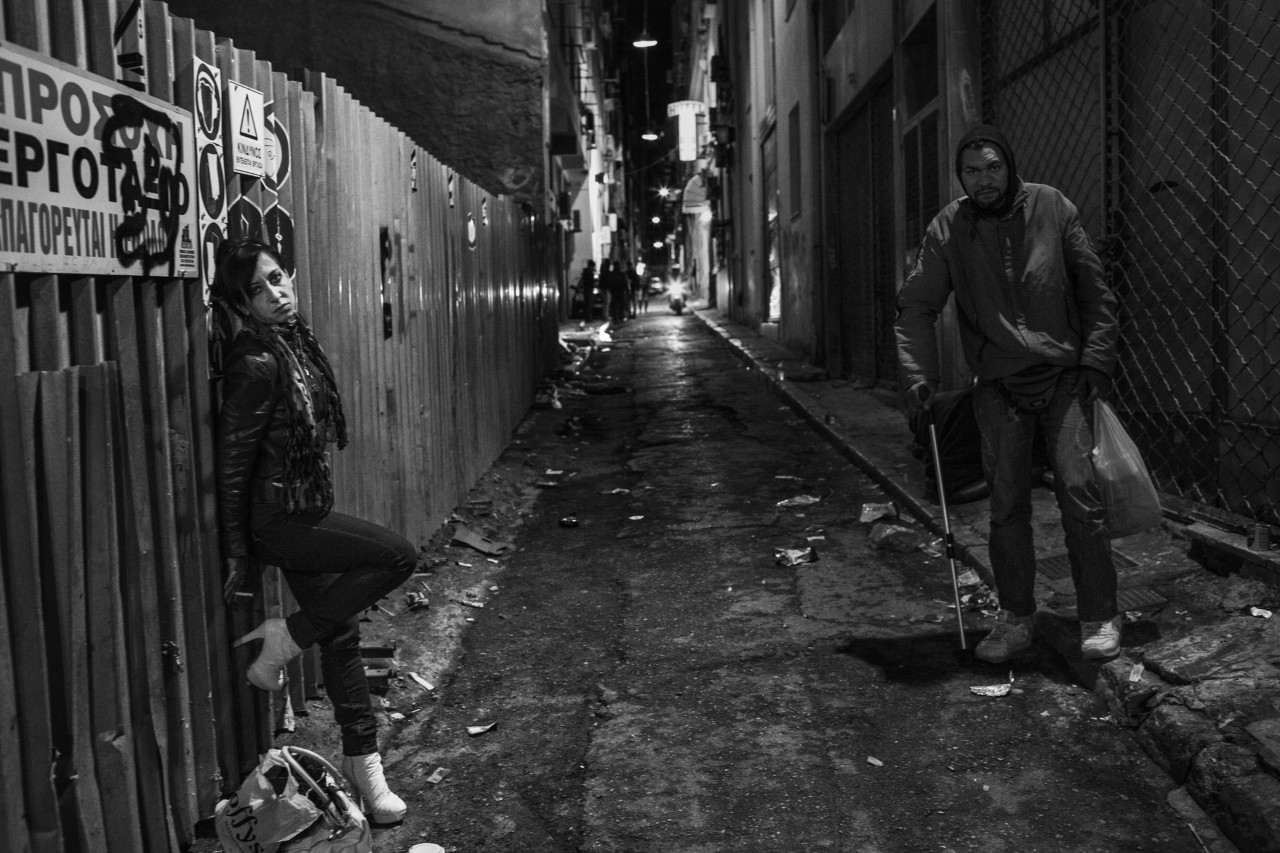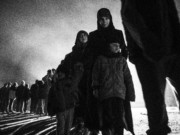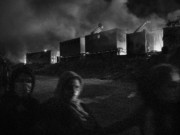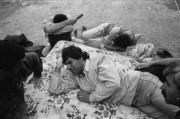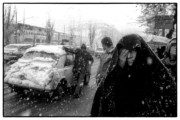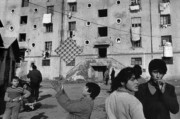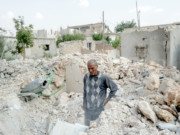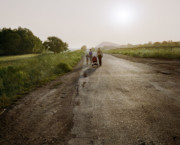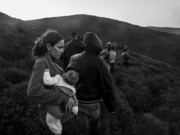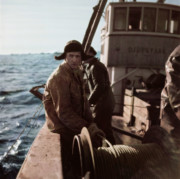The Visible Moment
Enri Canaj on his career photographing emerging societal changes as they become ‘visible’
Athens-based, Albanian-born Magnum nominee Enri Canaj moved with his family from Tirana, Albania to Greece as a child, immediately after the opening of the borders. His formative years had a profound effect, no doubt focusing his practice as a photographer, as he documented issues relating to migration and refuge. From his home in Athens, Canaj covers stories in Greece and the Balkans, documenting Europe’s migration crisis and what he describes as Europe’s “crisis of policy”. Here Enri Canaj discusses how his background has influenced the work he does, and how he has had to “embrace the pain within”.
You have been described in various ways – as a ‘reportage photographer’, a ‘documentary photographer’, a ‘humanitarian’. How would you describe yourself and your work?
I have always felt more curious about and sensitive towards social topics, topics that directly affect people’s lives. Situations that don’t necessarily cause a visible change, but create internal changes that you can only sense and smell and feel. And I wait for the time when those little moments become visible. And they become visible because they are familiar to you.
As a photographer I have covered different stories, situations and topics. I prefer not to categorize myself, or my work. Categories have limits and I prefer not to be part of any category.
"I wait for the time when those little moments become visible"
- Enri Canaj
Your work on the refugee crisis is focused on the Balkans, where you were born. How is your work in the region and on the subject of immigration informed by your own life and childhood?
I was eleven years old when my parents decided we had to leave our country [Albania]. When you leave something behind you, suddenly, it feels like the umbilical cord has been cut, it hurts because you don’t expect it. All the same, you don’t have the time to stop and think about it, you must go on and embrace the pain within.
In recent years the Balkans have become the main stage for the first wave immigrants trying to reach central and western Europe. It’s the place where you can see people living in another dimension: high adrenaline, exhaustion, deep breaths because they are alive, hope because they have managed to touch Europe with one foot, strength, and determination to continue their journey and jump into their final destination with both feet. There, you see people on the run with no time to stop and think.
There is a feeling of trust between you and those you photograph – for example in the Athens work, there is an intimacy between you and your subjects. How involved do you tend to be in the situations of your subjects?
When I first arrived in Athens with my family, in 1991, we spent the first night in a cheap hotel in the city center. The next morning, I woke up to the smells of spices around the central market and the noise of people on the street. The only other people staying in the hotel were these beautiful girls I saw every afternoon when they were dressing up and putting on their make-up with their doors open. I remember those girls: how tender they were towards me and my sister, how beautiful they looked. They even gave us pocket money. We stayed in that hotel for about a month, before moving to a house in a neighborhood which was at that time packed with immigrants like ourselves.
These are exactly the same areas I return to with my camera now. There are new migrants, sex workers, and drugs, but nothing has really changed. This is the first image of Athens which I have kept in my memory since then. The city feels to me like the sea where I first started to swim on my own. I wasn’t scared as an eleven-year-old boy, and that’s why I can just bond with the people I photograph. Spending time with them as a child made my curiosity grow. Listening to their stories, observing their gestures, their surroundings, their rooms, their belongings, their lives.
As a kid it was easy to enter these worlds, now as an adult I have to knock on the door a bit more… In the end it is all about trust towards each other. This is what makes us connect.
You say on your website that your thinking about shooting the migrant crisis in Europe is as much about hope as it is about the brutalities of the situation. Is it important for you to focus on universal human traits, rather than specifics or the ‘otherness’ of people?
The arrival of hundreds of thousands of people is a historical change for Europe. I believe that humanity will prevail, that the presence of these immigrants will create in Europeans a greater tolerance for those who are different. I prefer to believe that there exists another Europe: the Europe of freedom, the Europe of opportunity.
What all immigrants look for is a safe place to live. A child that comes from the Middle East or an African country has much greater difficulty discerning the nuances of, say, Greek or European culture. And the older one is, the more difficult it is to integrate. You must try joining in, of course, but there needs to exist some basic, essential help. I remember how we integrated into Greek society entirely through our own efforts. There was no plan, no programme, no support framework we could rely on.
"I believe that humanity will prevail"
- Enri Canaj
How much do you feel that ‘news fatigue’ or ‘compassion fatigue’ is a problem today – from Syria to the migrant crisis? Do you worry about the risk of an audience becoming immune to the issues?
I agree that there was, and is, a lot of media attention focused on these topics. Personally I think that in many cases there can be a lack of empathy from the media’s side, in both visual and written media. At the same time, I think that we should be more careful with the terms we use. Audiences are bombarded every day with words like: ‘crisis’, ‘refugees’, ‘migrants’… We should reverse this.
In my view, there’s a policy crisis going on. European countries are in crisis over dealing with these issues. People have been moving and will continue to move from one country to the other, from one continent to the other. They will always try to escape death. This is not a crisis, this is life.
I see people becoming harsher towards refugees and migrants, day by day. It’s as if the locals have had enough. But when someone comes to you from a war-torn country, you cannot just shut the door on their face saying enough, no more.
"I see people becoming harsher towards refugees and migrants, day by day"
- Enri Canaj
How can – or should – photography tackle the dangers of media saturation on topics like these?
Nowadays, everything moves so fast. We see pictures, videos, other visual media every single minute of the day. That creates lots of tension. There’s no time to process all this information, there’s no time to reflect upon it. It’s like you read a paragraph and you think that you have read the whole book. It’s the same with photography, you have to take your own time, to dig deep and when the time comes you can share it.
It took me several years to document the first part of these migrants’ journeys. For me to capture the initial reactions to, and circumstances of, their first days in Europe. To move from one country to the other together along with those people who allowed me to photograph them. And to me all of this was very familiar. Their present was walking in parallel with my past.
For me, this is the important part of my work, to share people’s emotions, not only the tough circumstances and the misery of the inhuman conditions.
Your work in Albania is softer than some of your other work. It plays with duality – the duality of Albania’s modernity alongside strong ties to tradition and the primacy of family ties. How much was working and photographing Albania a way to understand a place you left when young?
I left Albania as a child and returned back as a young man. I couldn’t go back for the first decade due to my documents not being in order. Everything had changed. At the first instance, it all felt worse. In my memory Albania was beautiful and sweet like the grandmother’s love for her grandson. The only thing that hadn’t changed was the morning’s smell. It was exactly the same as many many years ago and it remains the same nowadays.
I had kept Albania in my imagination. It was my refuge during difficult times. The only place i could find comfort and feel warm. It took me several trips back to the country to discover what I had left behind years ago, and to discover myself as well.
Photography was the tool in this process, it made it possible. Through photography, my curiosity to re-discover Albania was growing, my curiosity to meet new people and tell their stories. Slowly there was this new bond between me and the place I was born in, a beautiful, soft and sometimes timid bond.
"I had kept Albania in my imagination"
- Enri Canaj
In more general terms – outside any one specific project you work on – what would you say are your universal aims with photography? Do you have a ‘mission statement’ in your mind?
I truly believe that not only in photography, but in all professions, the most important and difficult part is to choose what kind of person you want to be. How you think of and accept yourself reflects on the way you accept others.
In my own experience I’ve learnt that it is very important to have a vision and to follow your path towards it. With the camera as your closest companion, as an extension of yourself, finding light even in the worst situations. Photography helped me decompress and open up and even share all the experiences I was carrying within me.
But you know what they say, each person has their own, silent dream. If you continue believing in yourself and you focus on your work, you always end up in a good place.
"The city feels to me like the sea where I first started to swim on my own"
- Enri Canaj
In terms of your practice, how important is format, presentation, and process in your work. Do you think you work more in a regulated, formal fashion or are you primarily reactive?
Everything has its own importance, every part of the whole process. As for my work, yes I do work in a disciplined and focused manner, but the reactive element is always there. And sometimes that’s what matters more. The little pieces of the puzzle that show the story I have witnessed. It has to be a narrative, like a book you read so that the story can be yours as well.
Finally, do you think that now, with the world the way it is, there are a new set of obligations, or requirements for documentary photographers? How has the ‘job’ changed?
The main thing that has changed is that you have more tools you can use while working. At the same time this can be very distracting.
Everything has been shown and said and there are not many things left to show. What you can still show however, is your own way of doing things. Being loyal to yourself. Showing things from your own angle.


